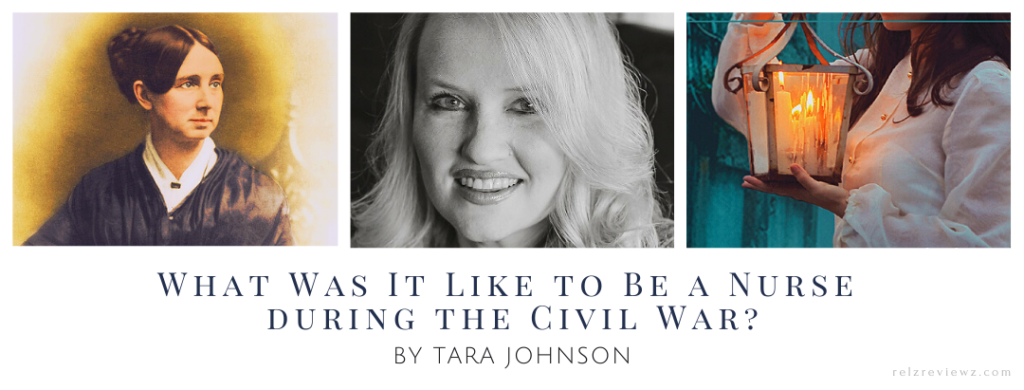
Nursing is close to my heart these days. Certainly not because I have any capabilities in that regard! I’m way to queasy for such a job. But my middle daughter is in her final year of her nursing degree at University and excelling and we are excited to see her enter the career she is so passionate about.
But imagine nursing in the Civil War, without the advances in both knowledge and technology we have at our fingertips. Tara Johnson shares some of what it might be like, gathered from her research for All Through the Night, her latest historical romance novel.
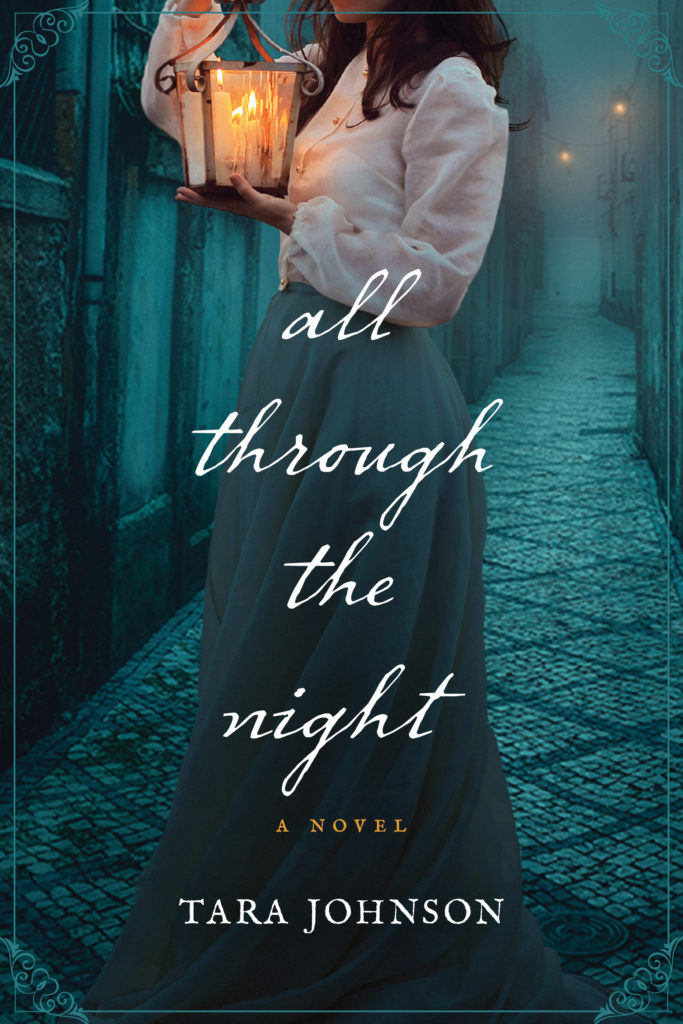
With her stammering tongue and quiet ways, Cadence Piper has always struggled to be accepted. After the death of her mother, Cadence sets her heart on becoming a nurse, both to erase the stain her brother has left on the family’s honor and to find long-sought approval in the eyes of her father. When Dorothea Dix turns her away due to her young age and pretty face, Cadence finds another way to serve . . . singing to the soldiers in Judiciary Square Hospital. Only one stubborn doctor stands in her way.
Joshua Ivy is an intense man with a compassionate heart for the hurting and downtrodden. The one thing he can’t have is an idealistic woman destroying the plans he’s so carefully laid. When the chaos of war thrusts Cadence into the middle of his clandestine activities, he must decide if the lives at stake, and his own heart, are worth the risk of letting Cadence inside.
Everything changes when Joshua and Cadence unearth the workings of a secret society so vile, the course of their lives, and the war, could be altered forever. If they fight an enemy they cannot see, will the One who sees all show them the way in the darkest night?
What was it like to be a nurse in the Civil War?
“Matronly persons of experience, good conduct, or superior education and serious disposition will always have preference; habits of neatness, order, sobriety, and industry are prerequisites. . . . Dress plain—colors brown, grey, or black and, while connected with the service, without ornaments of any sort.”
These are just a few of Dorothea Dix’s requirements for nurses when she was selected to be the superintendent of nurses in 1861. At the onset of the Civil War, the many wounded left the nation reeling. There were only about 150 hospitals in the entire country and no formal nursing schools existed.
Wounded men were often assigned to nursing duties as they recovered, though many resented it, preferring to be sent back to their regiment as a matter of honor, or sent home to recuperate. Yet the work to be done was often considered too delicate for a lady of means, the tasks scandalous by high society’s standards. Bathing filthy men, washing linens marred by dysentery, and battling the diseases that ran rampant through camps required resilience and nerves of steel.
To eliminate the romantic notions of soothing fevered brows floating in many young ladies’ minds, and to decrease the likelihood of improprieties, Dorothea Dix created a stringent list of nursing qualifications. All nurses who applied had to be between thirty-five and fifty years of age, obedient to rules, have good health, and be known as a person of moral character. Dix insisted all her nurses wear only black, gray, or brown, with no frills on their dresses, and according to some rumors, preferred all the nurses be plain in appearance.
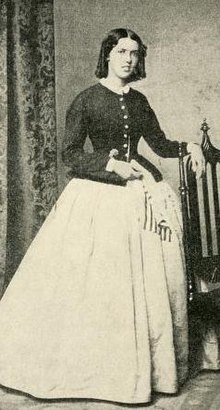
This, of course, left out many women who had a burning desire to serve their country. As I was researching nurses for my upcoming novel, All Through the Night, I stumbled upon the story of Elida Rumsey. Elida was desperate to do her part but was turned away by Dorothea Dix because of her young age and beauty. Undeterred, Elida chose to use her voice to aid the soldiers. She would rouse patriotism and boost morale among soldiers and laymen by standing atop the Rebel flag while singing “The Star-Spangled Banner.” She took up donations to make canes and crutches for men recovering from surgery, sang to soldiers in hospitals, and eventually was able to nurse the wounded on the front lines of battle. Elida’s determination was the perfect inspiration for my heroine Cadence Piper.
Nursing went far beyond gathering donations and bringing water to the thirsty. Some of the duties included:
- cleaning wounds
- bathing patients
- changing dressings
- feeding the wounded
- administering medications
- beating and airing out the straw mattresses patients slept on
- changing the straw in the mattresses once a month
- scrubbing floors
- washing linens and clothes
- building fires
- reading to the soldiers
- writing letters to the wounded’s loved ones
- encouraging the weak and downhearted
- spiritually preparing the fatally ill for death
Some nurses even taught soldiers to read and write, as Susie Taylor King did when she nursed the First South Carolina Volunteers, a regiment of African descent.
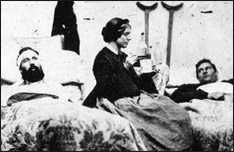
The sacrifice of nurses was the same for the women in the Union as it was in the Confederacy. When faced with the choice to return to Scotland with her mother and sisters, Kate Cumming chose to stay in the South with her father and brother and do what she could to ease the suffering of the wounded masses that flooded the houses, fields, and hospitals.
In her journal, Kate wrote:
The men are lying all over the house, on their blankets, just as they were brought from the battlefield. They are in the hall, on the gallery, and crowded into very small rooms. The foul air from this mass of human beings at first made me giddy and sick, but I soon got over it. We have to walk and, when we give the men anything, kneel in blood and water, but we think nothing of it at all.
Nurses often put camphor-soaked cotton balls in their nostrils to avoid being overpowered by the smells they encountered each day. Not only did they battle exhaustion and the threat of disease, which killed many volunteer nurses, but they were paid little for their work. The nurses blessed to be assigned by Dorothea Dix received 40 cents a day plus rations and housing. Male nurses received $20.50 a month. Most of the other volunteer nurses received nothing monetary for their sacrifice.
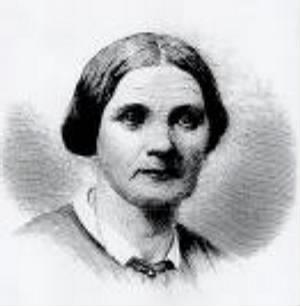
Such conditions required tremendous grit to endure. A perfect example was encompassed in the sass of Union nurse Mary Ann Bickerdyke. This feisty matron was known to complain loudly to Union commanders if she sensed their men were being pushed too hard. One day, when she was harassing General Sherman, the angry commander asked Bickerdyke if she had ever heard of subordination.
The scowling nurse fired back, “You bet I’ve heard of it. . . . It’s the only way I ever get anything done in this army.”
When troops passed Bickerdyke’s hospital on the way to Mississippi, Mrs. Bickerdyke encouraged the captain to stop his men so she and the other nurses could feed them, but he refused. As he led them away, a deep voice bellowed, “Halt!” The soldiers stopped in confusion. Amid the bewilderment, Bickerdyke and the staff of the hospital offered the men fruit, bread, coffee, and water. By the time the captain realized Bickerdyke had been the one to call out the command to stop, his entire regiment had been fed. The nurse received a formal reprimand but remained unrepentant, especially when she learned the regiment received no other provisions for two days.
Civil War nurses were required to be tough as nails, but it was their gentleness that eased the suffering of many young men pining for their mother’s care. Although Dorothea Dix was nicknamed “Dragon Dix” for her stringent demands and unyielding rules, she was noted as being the most kind and compassionate nurse of her day. When Louisa May Alcott, author of Little Women, became sick with typhoid fever after nursing some ill men, she journaled how Miss Dix stopped her own busy schedule to care for her “as thoughtfully tender as any mother.”
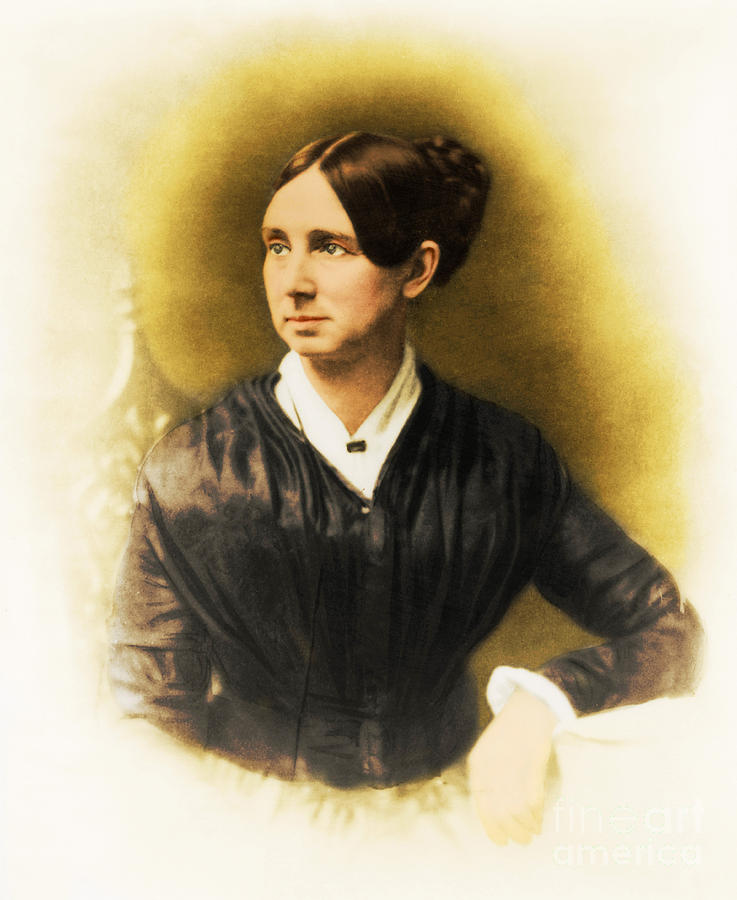
The bold and vibrant nuances of these women all painted the character of Cadence in All Through the Night. The amazing nurses of the Civil War were a variety of personalities, backgrounds, and beliefs, but what these women had in common was a calling to serve and an unparalleled grit in a time when their fellow man needed them most.
(Sources: pbs.org, historynet.com, battlefields.org, womenhistoryblog.com)
Thank you for sharing, Tara!
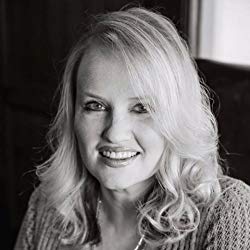
Tara Johnson is a passionate lover of stories who uses fiction, nonfiction, song, and laughter to share her testimony of how God led her into freedom after spending years living shackled to the expectations of others. Tara is the author of three novels set during the Civil War: Engraved on the Heart, Where Dandelions Bloom, and All Through the Night, which releases in January 2021. She is a member of American Christian Fiction Writers and makes her home in Arkansas with her husband and three children. Visit her online at tarajohnsonstories.com
Relz Reviewz Extras
All Things Johnson @ Relz Reviewz
Visit Tara’s website and blog
Buy at Amazon: All Through the Night or Koorong












February 16, 2021 at 1:12 am
When my mother had cancer and I helped care for her I commented to my dad that “I’m sure glad I don’t work in the nursing field”. He kindly said I didn’t appear to mind doing it. It’s different when it is someone you love!
February 17, 2021 at 9:27 am
You’re so right, Joan!
February 16, 2021 at 2:12 am
When my dad was sick with cancer and was in his final stages, a nurse came to our house to train my mom on how to administer IV’s. My mom did this so that my dad could stay at home and not be in the hospital. My mom was a strong and caring lady. She took care of my dad even though it would be hard to see the love of your life really ill. I’ll always admire her for that. Thank you for sharing this interview with Tara. I sure learned so much of what these nurses had to do during the Civil War. I know nurses today don’t have the time to sit down and write letters for their patients to their loved ones.
February 17, 2021 at 9:28 am
Your mom sounds like an amazing woman!
February 16, 2021 at 7:55 am
I’m not really the nursing kind, although I did a lot of it for my kids when they were little. I also helped with my dad and mom as they got older before they passed away. My older sister, who couldn’t even stand to touch raw hamburger when she was growing up, became a nurse who worked in the ER. I really couldn’t understand that! LOL
February 17, 2021 at 9:29 am
Isn’t it funny how things change when duty calls? I know your parents appreciated you so much, Winnie.
February 16, 2021 at 7:56 am
Yes I am a nursing kind… don’t like to see people suffer. I want to win this book for my friend who lost her hubby to cancer. She loves to read Christian fiction.
February 17, 2021 at 9:30 am
I’m praying for your friend, Judy.
February 16, 2021 at 8:05 am
This book is on my list to read! I love the historical aspects behind it 🙂
February 17, 2021 at 9:30 am
Thank you, Kimberly! I hope you enjoy it!
February 16, 2021 at 12:58 pm
This book sounds really interesting and is on my TBR list ! I always wanted to be a nurse but chose to be an X-ray technologist instead and enjoyed my occupation for 40 years. I love reading historical fiction.
February 17, 2021 at 9:31 am
That’s a great career, Mary. You help so many people.
February 16, 2021 at 1:30 pm
It depends on the patient!!!
February 17, 2021 at 9:32 am
Boy, that’s the truth! lol
February 16, 2021 at 3:01 pm
I never wanted to be a nurse, but I had to learn certain medical techniques/procedures to care for my child with special needs.
February 17, 2021 at 9:32 am
Bless you, Roxanne. What a tremendous calling.
February 16, 2021 at 6:05 pm
Nursing emotional wounds and soul is a calling for me that can be just as difficult as nursing physical wounds. I dont believe I have the stomach to tend visual wounds and needs but haven’t been put to the test 😉
February 17, 2021 at 9:33 am
You’re right, Jessica. Emotional wounds can be extremely difficult. Excellent point!
February 17, 2021 at 10:47 am
Unfortunately,soldiers usually deal with both and bravo to the nurses who could tend to both. Back then it was possibly more difficult with less technology and I’m sure shortage of supplies ❤️
February 16, 2021 at 10:46 pm
I am a math person but do take good care of my family and dogs! Very interesting article!
February 17, 2021 at 9:33 am
Thank you!
February 17, 2021 at 5:40 am
I could never be a nurse. I can’t stand the sight of blood, and I’m not good dealing with the sick.
February 17, 2021 at 9:34 am
My oldest daughter is the same way. She’s a sweet care giver but when blood is involved, it’s a no-go.
February 17, 2021 at 5:52 am
Am I the nursing kind? Well, yes and no. I have no issue with nursing animals. Anything from horses to dogs and other smaller critters. However, I am unable to nurse humans.
Not sure why this is, but I am always the first to help an animal in need but when it comes to humans my stomach gets queasy.
February 17, 2021 at 9:37 am
I think it’s that way for many. Everyone in my family is either involved in ministry or medicine. Dinnertime talk revolved around Operating Room procedures or the Bible. I grew up with it so it doesn’t bother me. For others, just flipping past the Surgery Channel gives them the heebie jeebies for a week.
February 17, 2021 at 8:50 am
Both of my parents are having chemo treatments. I am helping take care of them.
February 17, 2021 at 9:37 am
I will pray for them, Erika!
February 17, 2021 at 12:35 pm
Thank you very much!
February 17, 2021 at 9:16 am
I’m a teacher, but am a nurse at heart. I love taking care of others.
February 17, 2021 at 9:38 am
Such a wonderful gift!
February 17, 2021 at 11:43 am
Oh, no. I’m definitely not the nursing kind. My husband would say I’m a terrible nurse, in fact!
February 17, 2021 at 12:26 pm
I cared for my daddy before he passed and now I’m my mom’s full time caregiver. Thank you for the wonderful chance. Blessings
February 17, 2021 at 12:35 pm
I don’t consider myself the nursing kind. Although, I do enjoy serving others.
February 17, 2021 at 11:09 pm
I have nursed my kids and husband but can’t stand the sight a lot of blood and srious wounds. Would enjoy reading this book.
February 20, 2021 at 11:18 am
I am definitely the nursing kind but I seem to always be the patient. Our youngest son is doing covid icu and studying for his masters in family nurse practitioner. He says I Inspired him.
February 21, 2021 at 8:58 am
I’m not the nursing kind. I would be glad to read, sit or visit with them though.